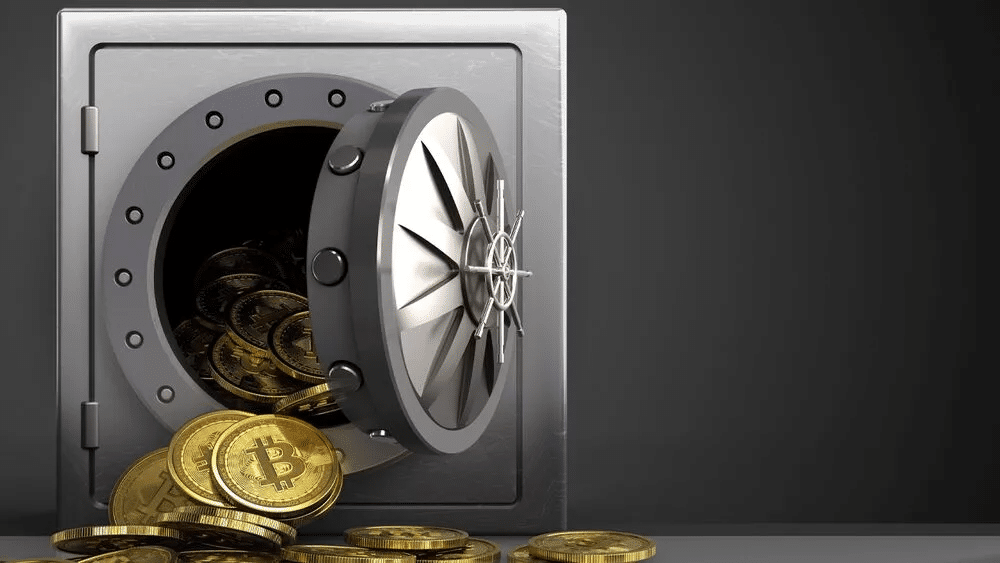Ever wondered what happens when the crypto world meets regulatory bodies like the SEC? Well, recent news highlights just that! Crypto exchange Coinme, a name familiar to those using Bitcoin ATMs, has been hit with a hefty fine of approximately $4 million by the US Securities and Exchange Commission. The core issue? Allegedly marketing unregistered securities and making what the SEC calls “misleading statements” about their crypto token, UpToken (UP).
What Exactly Happened? The SEC’s Take
On April 28th, the SEC dropped the news, announcing a resolution to charges against Coinme, its subsidiary Up Global SEZC, and their CEO, Neil Bergquist. The breakdown looks like this:
- Up Global has agreed to a substantial fine of $3.52 million, for which Coinme is also liable.
- Coinme faces an additional penalty of $250,000.
- CEO Neil Bergquist has been fined $150,000.
- All parties involved have agreed to pay these penalties.
The Root of the Problem: The UpToken ICO
The SEC’s investigation centered around Coinme, Up Global, and Bergquist’s Initial Coin Offering (ICO) of UpToken, which took place between October and December 2017. The SEC argues that this ICO constituted an investment contract under the well-known Howey Test. In simple terms, they believe the UpToken was offered as an investment opportunity without proper registration as a security.
Why Does the Howey Test Matter?
The Howey Test is a legal framework used to determine if a transaction qualifies as an “investment contract” and is therefore subject to securities laws. It essentially asks if there’s an investment of money in a common enterprise with the expectation of profits derived from the efforts of others.
The Promise of UpToken: Fueling the Bitcoin ATM Network
During the ICO, Coinme managed to raise around $3.6 million. The goal? To expand their network of Bitcoin ATMs. Interestingly, about 30 ATMs were indeed added using the funds raised. Holding UpToken came with perks when using these ATMs, such as:
- Reduced transaction fees.
- A 1% cashback reward paid in UpToken.
A Shift in Strategy: From Dedicated ATMs to Coinstar Partnership
Fast forward to January 2019, and Coinme shifted gears. They partnered with Coinstar, leveraging their existing cash-counting kiosks for cash-to-crypto conversions. By July 2019, Coinme had phased out all of its own dedicated Bitcoin ATMs.
The Downfall of UpToken
Here’s where things took a turn for the worse for UpToken holders. As Coinme moved away from its own ATMs, the utility of UpToken diminished significantly. As the SEC pointed out, “UpToken has no current use, and UpToken holders can no longer use UpToken to obtain the benefits described in the UpToken offering materials.” Unsurprisingly, the market value of UP plummeted. Its market capitalization is now around $50,000, with a meager 24-hour trading volume of approximately $180.
Allegations of Misleading Statements
Beyond the unregistered securities issue, the SEC also alleges that Bergquist and Up Global made “false and misleading statements” regarding the demand for UpToken and the total amount of funds raised during the ICO. This adds another layer of complexity to the case.
What Were These Misleading Statements?
The SEC claims that Bergquist and Up Global took steps both before and during the ICO to secure a significant supply of UpToken. This maneuver allegedly reduced Coinme’s need to purchase UpToken on the open market for their ATM rewards program. Let’s break down some specific instances:
- The 160 Bitcoin Transaction: Coinme reportedly sent 160 BTC (worth over $1 million at the time) to an Up Global wallet used for ICO investor payments. Up Global then returned roughly 14.5 million UP to Coinme at a discounted rate. The SEC believes this transaction was designed to create a false impression of substantial third-party demand.
- The Hong Kong Corporation Trade: Bergquist is accused of orchestrating a 500 Bitcoin “round-trip” trade of UP tokens with an undisclosed Hong Kong company. Coinme allegedly borrowed funds to buy more UP at a discount. This transaction, according to the SEC, was also intended to inflate the perceived demand for the tokens.
Consequences for Bergquist
While Bergquist neither admitted nor denied the SEC’s findings, he consented to settle the allegations. A significant consequence for him is a three-year ban from serving as an officer or director of a public company. This highlights the seriousness with which the SEC views these violations.
Key Takeaways: What Can We Learn From This?
- Regulatory Scrutiny is Real: This case underscores the increasing attention regulatory bodies like the SEC are paying to the crypto space, particularly ICOs and token offerings.
- Transparency is Crucial: The allegations of misleading statements highlight the importance of providing accurate and truthful information to investors.
- Understanding Securities Laws: Companies operating in the crypto space need a clear understanding of securities laws and regulations like the Howey Test. Failing to comply can have significant financial and legal repercussions.
- The Importance of Utility: The decline of UpToken’s value after its utility diminished serves as a reminder of the importance of real-world applications and use cases for crypto tokens.
Looking Ahead: Navigating the Regulatory Landscape
The Coinme case serves as a cautionary tale for the crypto industry. As the sector matures, navigating the regulatory landscape becomes increasingly critical. Companies must prioritize compliance, transparency, and providing clear value to their token holders to avoid similar pitfalls.
This situation underscores the ongoing dialogue and sometimes tension between innovation in the crypto world and established financial regulations. It will be interesting to see how these interactions continue to shape the future of digital assets.
Disclaimer: The information provided is not trading advice, Bitcoinworld.co.in holds no liability for any investments made based on the information provided on this page. We strongly recommend independent research and/or consultation with a qualified professional before making any investment decisions.




